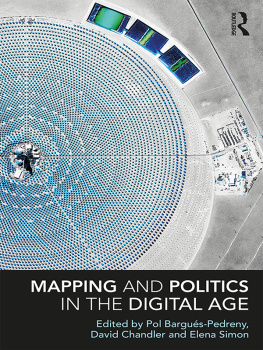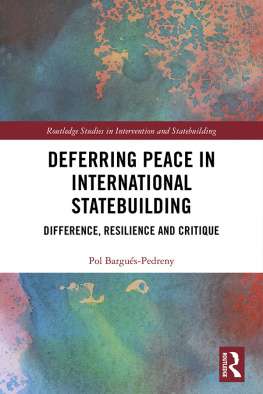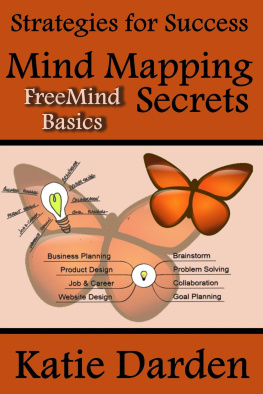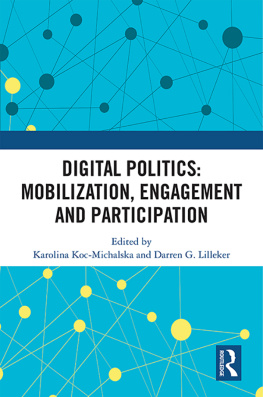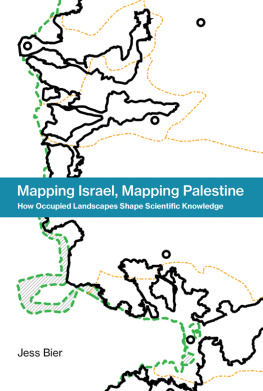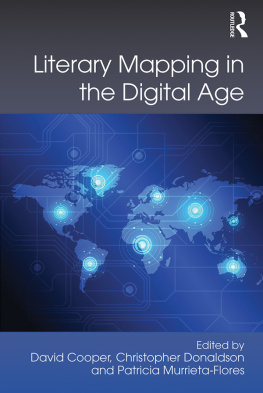Mapping and Politics in the Digital Age interrogates maps seemingly simple yet profoundly complex; agents driving the way we understand and make our world. Historical exemplars lay bare how maps actively build and contest conceptions of the world. Maps are revealed as they permeate and evolve with institutional practices and governance. Finally, the book shows mapping appropriated and deployed to bring about new forms of politics, countering and empowering and visualizing a more just world.
John Krygier, Ohio Wesleyan University, USA
Produced by an outstanding and eclectic group of established and emergent scholars and practitioners, this compelling volume is a must-read for those committed to understanding how mapping and governing are institutionalized, interrelated, and contested, and how, as a radical and open practice, mapping might provide opportunities to imagine critically and creatively different futures.
Elaine Stratford, Institute for the Study of Social Change, University of Tasmania, Australia
Mapping and Politics in the Digital Age shows us that maps reveal as much about human self-understanding as they do about the world. As mapping is transformed by digital technology we will find new possibility and new peril; this book is vital for understanding the political world we inhabit today.
Joe Hoover, Queen Mary University of London, UK
A book with an impressive array of new ideas from an interesting collection of contributors. The editors are to be commended on their creativity in assembling such a valuable multidisciplinary examination of cartographic power in the new digital world. I find it highly encouraging that the collection draws lessons and perspectives from historic cartography to look forward and better describe the impacts of mapping practices that are coming into being now and in the near future.
Martin Dodge, Department of Geography, University of Manchester, UK
Mapping is not what it used to be! This collection of essays by scholars from across the social sciences and humanities shows why politics in the twenty-first century has been transformed by digital technologies, which reconfigure the knowledge practices through which the world is made knowable as a scene for intervention - by those seeking to impose order on an uncertain future as well as by those seeking to imagine alternative futures.
Clive Barnett, Professor of Geography and Social Theory, University of Exeter, UK
Mapping and Politics in the Digital Age
Throughout history, maps have been a powerful tool in the constitutive imaginary of governments seeking to define or contest the limits of their political reach. Today, new digital technologies have become central to mapping as a way of formulating alternative political visions. Mapping can also help marginalised communities to construct speculative designs using participatory practices. Mapping and Politics in the Digital Age explores how the development of new digital technologies and mapping practices are transforming global politics, power, and cooperation.
The book brings together authors from across political and social theory, geography, media studies and anthropology to explore mapping and politics across three sections. Contestations introduces the reader to contemporary developments within mapping and explores the politics of mapping as a form of knowledge and contestation. Governance analyses mapping as a set of institutional practices, providing key methodological frames for understanding global governance in the realms of urban politics, refugee control, health crises and humanitarian interventions and new techniques of biometric regulation and autonomic computation. Imaginaries provides examples of future-oriented analytical frameworks, highlighting the transformation of mapping in an age of digital technologies of control and regulation. In a world conceived as without borders and fixed relations, new forms of mapping stress the need to rethink assumptions of power and knowledge.
This book provides a sophisticated and nuanced analysis of the role of mapping in contemporary global governance, and will be of interest to students and researchers working within politics, geography, sociology, media, and digital culture and technology.
Pol Bargus-Pedreny is Research Fellow at the Barcelona Centre for International Affairs, Spain
David Chandler is Professor of International Relations at the Department of Politics and International Relations, University of Westminster, UK
Elena Simon is PhD candidate at the University of Sheffield, UK, and research assistant at the Centre for Global Cooperation Research in Duisburg, Germany
Routledge Global Cooperation Series
This series develops innovative approaches to understanding, explaining and answering one of the most pressing questions of our time how can cooperation in a culturally diverse world of nine billion people succeed?
We are rapidly approaching our planets limits, with trends such as advancing climate change and the destruction of biological diversity jeopardising our natural life support systems. Accelerated globalisation processes lead to an ever growing interconnectedness of markets, states, societies, and individuals. Many of today's problems cannot be solved by nation states alone. Intensified cooperation at the local, national, international, and global level is needed to tackle current and looming global crises.
Series Editors: Tobias Debiel, Claus Leggewie and Dirk Messner are Co-Directors of the Kte Hamburger Kolleg / Centre for Global Cooperation Research, University of Duisburg-Essen, Germany. Their research areas are, among others, Global Governance, Climate Change, Peacebuilding and Cultural Diversity of Global Citizenship. The three Co-Directors are, at the same time, based in their home institutions, which participate in the Centre, namely the German Development Institute / Deutsches Institut fr Entwicklungspolitik (DIE, Messner) in Bonn, the Institute for Development and Peace (INEF, Debiel) in Duisburg and The Institute for Advanced Study in the Humanities (KWI, Leggewie) in Essen.
https://www.routledge.com/Routledge-Global-Cooperation-Series/book-series/RGC
Trust in International Relations
Rationalist, constructivist, and psychological approaches
Edited by Hiski Haukkala, Carina van de Wetering and Johanna Vuorelma
The Justification of Responsibility in the UN Security Council
Practices of Normative Ordering in International Relations
Holger Niemann
Mapping and Politics in the Digital Age
Edited by Pol Bargus-Pedreny, David Chandler and Elena Simon
MAPPING AND POLITICS IN THE DIGITAL AGE
Edited by Pol Bargus-Pedreny, David Chandler and Elena Simon
First published 2019
by Routledge
2 Park Square, Milton Park, Abingdon, Oxon OX14 4RN
and by Routledge
52 Vanderbilt Avenue, New York, NY 10017
Routledge is an imprint of the Taylor & Francis Group, an informa business
2019 selection and editorial matter, Pol Bargus-Pedreny, David Chandler and Elena Simon; individual chapters, the contributors
The right of Pol Bargus-Pedreny, David Chandler and Elena Simon to be identified as the authors of the editorial material, and of the authors for their individual chapters, has been asserted in accordance with sections 77 and 78 of the Copyright, Designs and Patents Act 1988.


